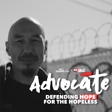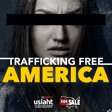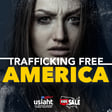
What Survivors of Sex Trafficking Really Need: Bekah Charleston’s Story & the Road to True Restoration - Part 1 | S6, E1
In this powerful episode of the Trafficking Free America Podcast, survivor leader and national speaker Bekah Charleston opens up about her experience with sex trafficking in Las Vegas and what it truly takes to help victims transition into long-term survivors.
🎧 Hosted by the U.S. Institute Against Human Trafficking and Kids Not For Sale, this candid conversation dives deep into the rehabilitation and restoration process—beyond safe homes, into the real challenges survivors face reentering society.
🔍 What you'll learn:
- Why leaving "the life" is more complex than most people realize
- The critical difference between a safe home and a restoration home
- Why many survivors return to trafficking—and how we can change that
- The essential role communities, churches, and everyday individuals play in survivor success
👥 This episode is a must-watch for anyone involved in social work, advocacy, policymaking, or just looking to better understand how to truly help survivors.
🛑 Become an Abolitionist:
Subscribe for free training and resources at: https://usiaht.org/abolitionist
📌 Timestamps
00:00 – Intro: What is Trafficking Free America?
00:31 – Purpose of the episode: Helping survivors beyond rescue
01:11 – Meet Bekah Charleston: Survivor and national advocate
02:08 – What happens after safe homes? The missing link in support
03:24 – Bekah’s personal background and story
06:27 – How hard is it really to leave the life?
10:12 – The connection between trafficking and modern-day slavery
11:08 – Graduating from a safe home: Then what?
16:47 – Why rehabilitation isn’t profitable—but why we must still do it
17:56 – Bekah explains transitional housing and restoration services
20:25 – Clarifying safe homes vs. restoration homes
23:07 – Outro: Join the fight to end trafficking
🔔 Don’t forget to like, subscribe, and hit the bell icon to stay up to date on future episodes.
#HumanTrafficking #BekahCharleston #SurvivorStories #SexTrafficking #RestorationNotRescue #USIAHT #TraffickingFreeAmerica #KidsNotForSale #AbolitionistMovement

![The Best Ways to Support a Safe Home [REPLAY] | Safe Home Series, Part 4 image](https://media.zencastr.com/cdn-cgi/image/width=112,quality=85/image-files/640a1493181f834e694b13d6/20777798-06ea-438b-8fe4-26e91f8b685e.png)

